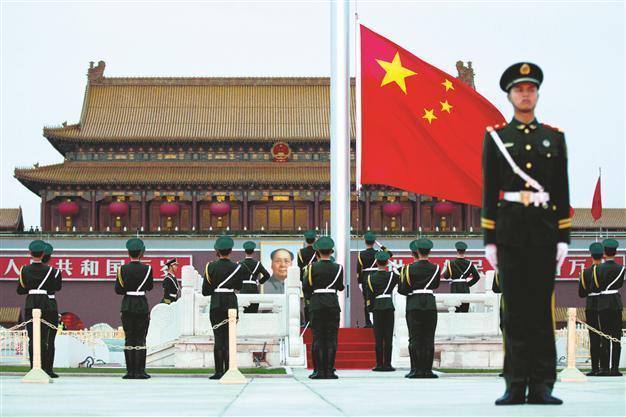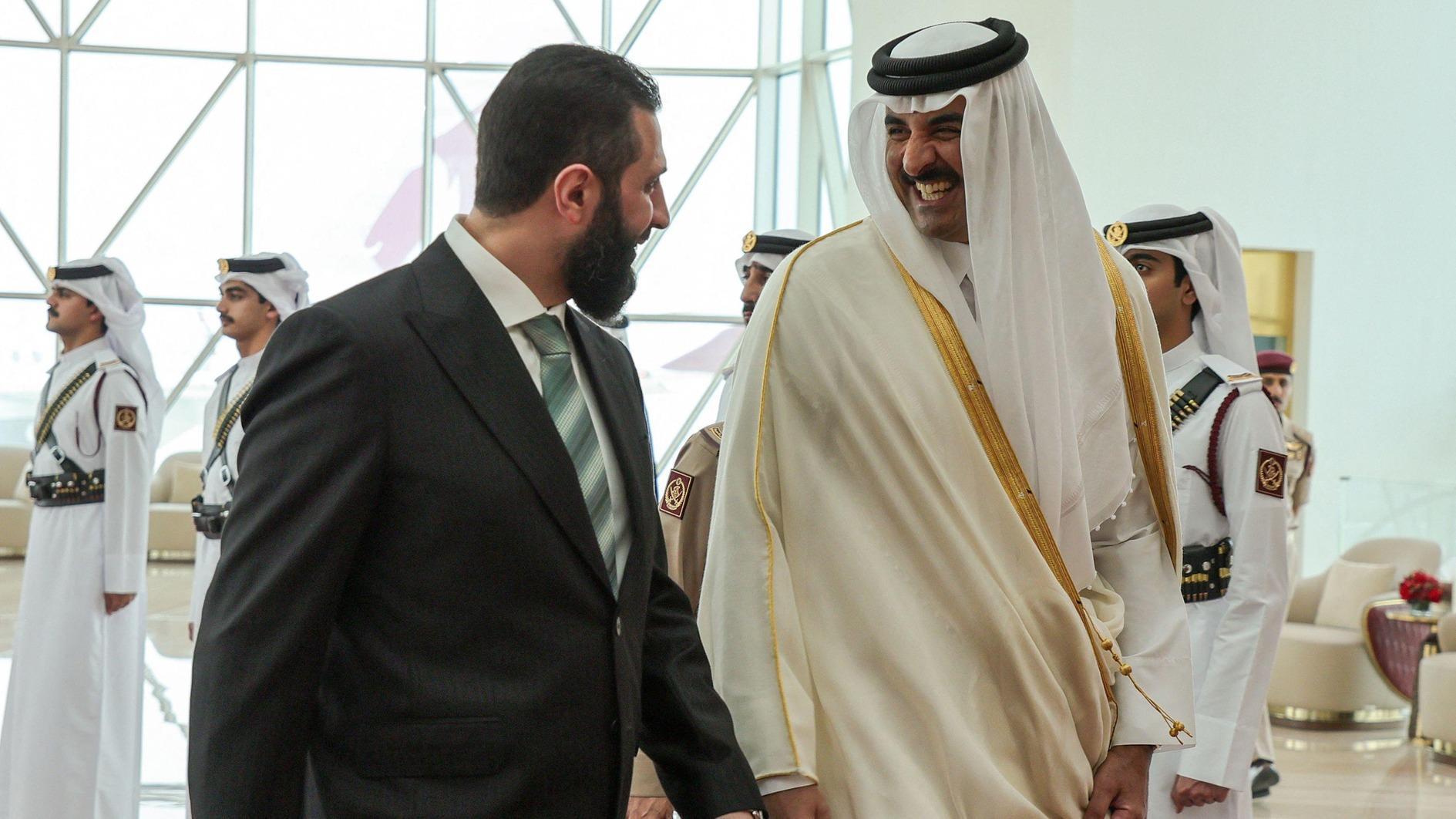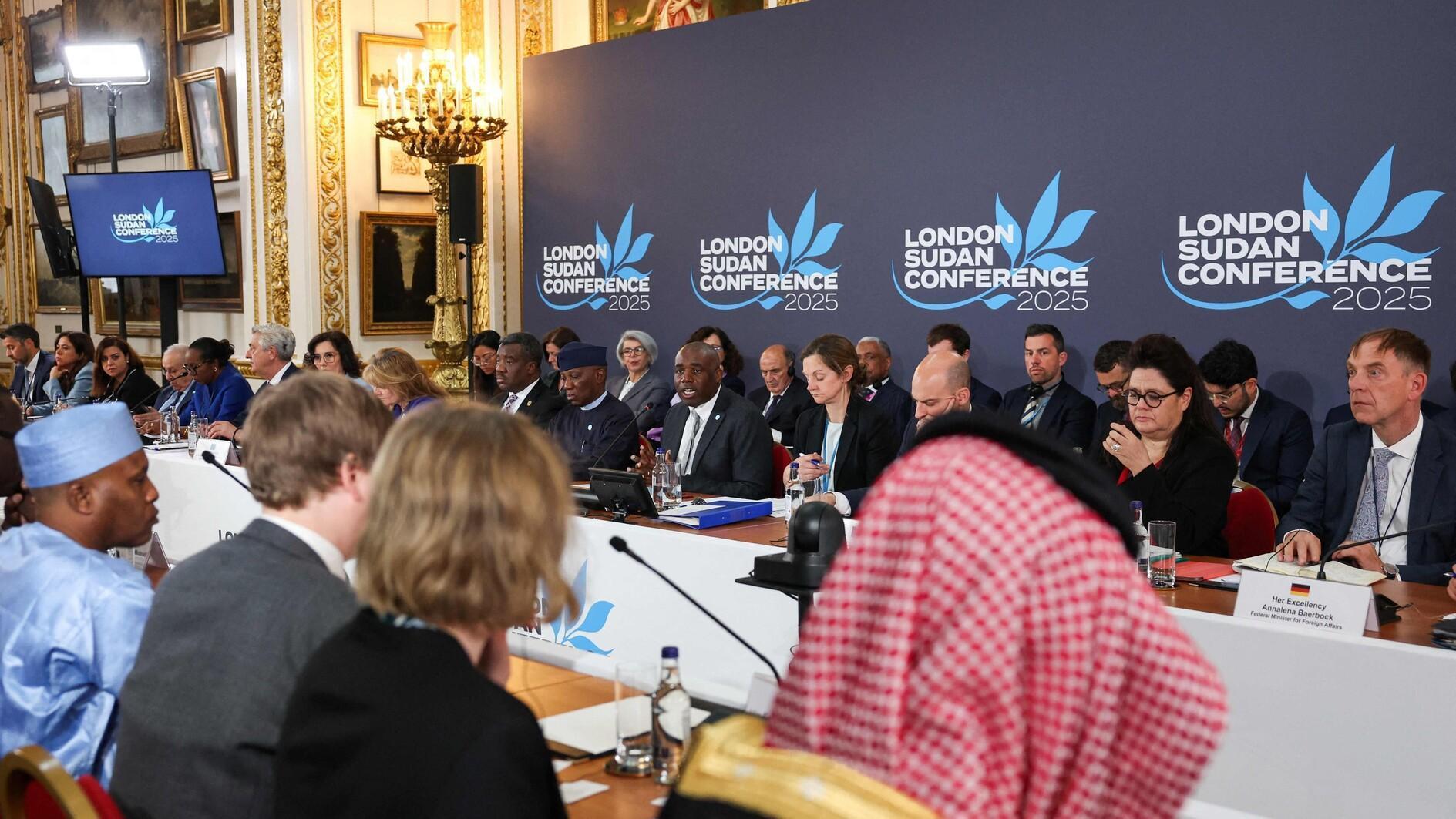Beijing sees takeover of hard-liners
SADİ KAYMAZ BEIJING - Hürriyet Daily News

Policemen stand at attention and salute while the Chinese national flag is lowered at Tiananmen Square, near the Great Hall of the People in Beijing. AP photo
Conservatives are poised to capture critical seats in the Politburo Standing Committee (PBSC) as the Communist Party of China launches its long-awaited congress.The main contenders for the party’s innermost circle have been reportedly drawn up by President Hu Jintao, his heir-apparent Xi Jinping and party elders who still wield considerable influence.
The new leaders likeliest to take over the key seats in the PBSC are conservatives, at the expense of younger and reform-minded names. Xi and Li Keqiang already hold two seats in the seven-man PBSC.
Elevation of Vice Premier Wang Qishan, 64, best known by international investors and in finance circles, is taken for granted. However, Wang Qishan, long tipped to steer the world’s second-largest economy as executive vice premier, will likely be given the lesser job of party discipline chief. Although this key job equips him with enormous power against corruption inside the party, there will inevitably be a huge power vacuum in Chinese international finance and trade relations.
Meanwhile, Zhang Gaoli, the party boss of one of fastest-growing cities, has apparently benefited from the repositioning of Wang Qishan. Zhang Gaoli may oversee the crucial portfolio of economy, finance and trade. Incomparable in competence to Wang Qishan, who has proven his competence in dealing with foreign investors, Zhang Gaoli’s main selling point is that he has made almost no mistakes by keeping a very low profile in fast-developing coastal cities. Asked about his success in Tianjin, he showed his abilities at maneuvering along a career route to the top by saying he would adhere to a “scientific development model,” a motto championed by Hu.
Another likely conservative candidate for top leadership is Zhang Dejiang, the son of a former general. He received his undergraduate education from Kim Il-sung University in North Korea. As the party secretary of Guangdong province in 2004, Zhang Dejiang was under heavy criticism for his administration’s slow response to the SARS crisis and initial cover-up efforts. Known to be wary of foreign and private enterprises, he may continue to campaign in defense of mammoth state-owned enterprises, one of the main stumbling blocks in the path of essential political and economical reforms. Zhang Dejiang is expected to assume the legislative and security portfolio.
Liu Yunshan will most likely succeed Li Changchun and become the new “propaganda chief” of the country. In this critical seat, he will control the country’s notorious censorship system by controlling what the people read, hear and watch. Considering the track record of Liu, it is almost certain that he will maintain strict media and Internet censorship policies.
If Wang Qishan is sidelined, Zhang Dejiang promoted and Liu installed as propaganda czar, the new leadership will be dominated by conservatives. Such a makeup would definitely dash hopes that the party might push for bold political reforms, particularly in promoting human rights, media freedom and the rule of law.
Hopes are still alive as horse trading and intrigue among factions and party elders will continue until the last day of the congress. Reform-minded elites within the party are pressing to secure the elevation of reform-minded rising political star Wang Yang. One of the younger contenders at 58, Wang Yang staunchly promoted intraparty democracy and media transparency as the party boss of Guangdong province, a colossal export hub in China. However conservatives now believe that Wang Yang’s influence may very rapidly expand, thus they are making all efforts to create barriers to prevent Wang Yang from being elevated to the PBSC. Opponents in the party see him as the Chinese Mikhail Gorbachev, leading the party to destruction. Others say, “Reforms create risks, but no reform brings destruction in the end.”
Li Yuanchao, another reform-minded figure, appears to be left out in the cold as well. Hu’s protégé and until recently seen by many as almost certain to obtain a seat in the PBSC, he also fell victim to the conservatives. Li Yuanchao is one of few contenders who, like Wang Yang, have called for serious political reforms.
Xi and Li Keqiang will hold their PBSC seats for two more terms. Unless they adopt a conservative style at the helm of the state as the president and prime minister, they may open the way for reformers in the top echelon of power in the next reshuffle in 2017, when five of the seven PBSC members will have to retire due to age limits including Liu, Zhang Dejiang and Zhang Gaoli.
The people will have to wait for years to be able to enjoy more human rights, individual freedom, private entrepreneurship and rule of law as long as reformers stay out of the PSBC, the pinnacle of power.
















